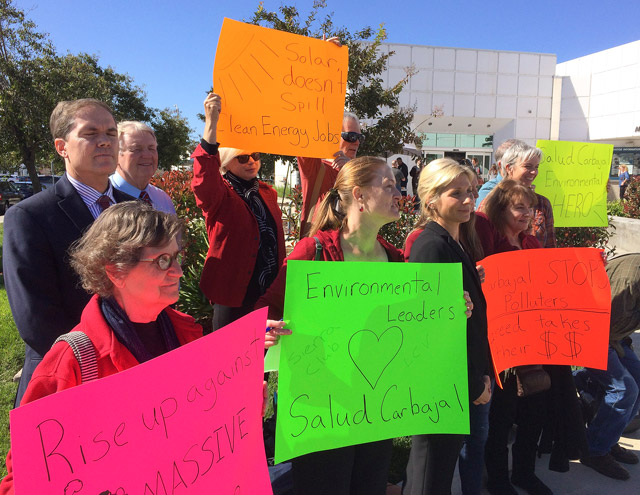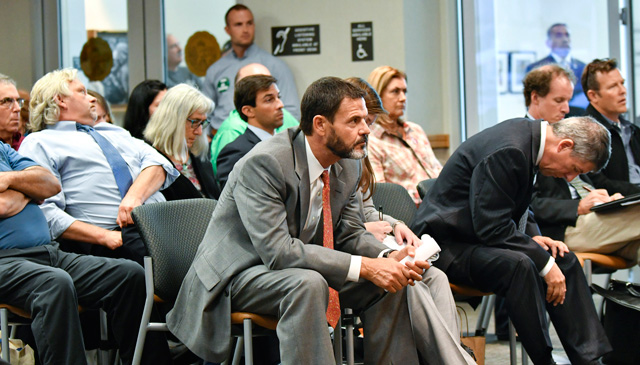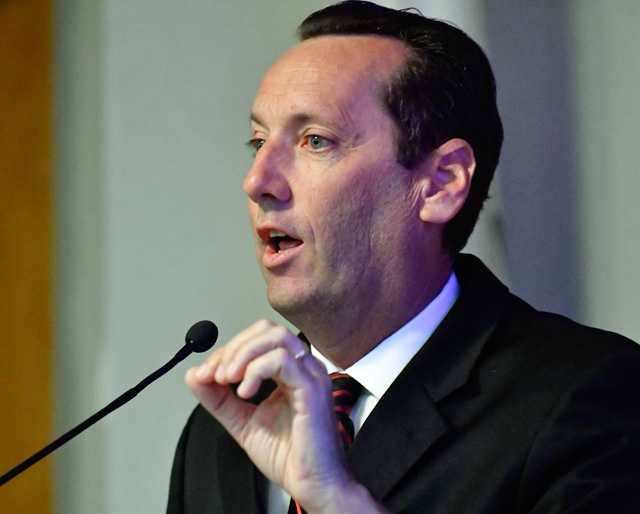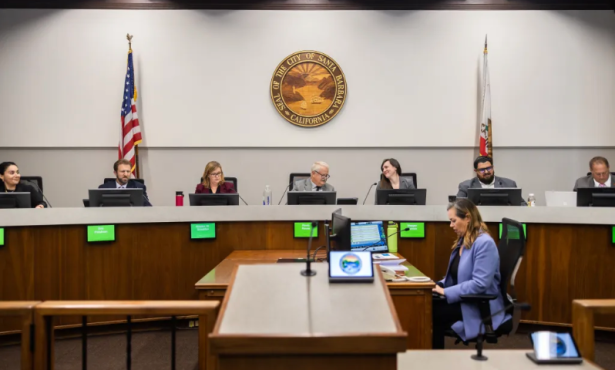Supes Reject PCEC Appeal
Pacific Coast Energy Company Orcutt Hill Project Halted

In a divided decision, the county supervisors denied a proposal by Pacific Coast Energy Company (PCEC) to nearly double its existing cyclic steaming operations on Orcutt Hill. The decision, strongly opposed by North County supervisors Peter Adam and Steve Lavagnino, does not bode well for pending oil-well-drilling applications, all bigger in size and scope.
In its first iteration, PCEC’s project consisted of 96 cyclic steam injection wells — and 48 replacement wells — at the existing oil and gas field. In an attempt to mitigate oil seepage, they offered to drill in areas outside of the Careaga tar zone. Earlier this year, the Planning Commission denied the project, finding its environmental impacts outweighed the economic benefits.
Just before the company appealed the decision to the Board of Supervisors, it offered additional environmental perks including dropping to as low as 60 percent production, offsetting 100 percent of the project’s greenhouse-gas emissions, funding a $125,000 study of the Lompoc yerba santa, and implementing efforts to preserve the California tiger salamander.
But environmentalists argued PCEC has hardly been a responsible operator. Since 2010, the company has experienced 23 “petroleum releases,” spilling nearly 13,000 gallons, according to county records. Since the company started drilling in 2007, seeps have increased in frequency. PCEC does not dispute this phenomenon, but the company argues that the longtime oil and gas field carries an extensive seepage history. If a good place to drill oil exists in Santa Barbara, they say, this is it.

Randy Breitenbach, the company’s CEO, estimated the project would provide county coffers with $1.8 million annually. He argued PCEC is one of the county’s biggest property taxpayers, paying about $3.7 million each year in the recent past. His economics argument was brought to life by a number of oil company employees, who said the industry provides some of the only well-paying skilled jobs in the county. In addition, the project would create new union construction jobs, which opponents dismissed as mostly frivolous considering their temporary nature. Likewise, attorneys with the Environmental Defense Center stressed oil revenues make up less than one percent of the county’s property tax proceeds.
In some ways, Tuesday served as a shift from two years ago, when voters shot down the proposed ban on fracking and other unconventional oil drilling known as Measure P. Despite that defeat, proponents have since seen successes. Last May, the county supervisors implemented the state’s most stringent carbon emissions level — 1,000 metric tons per project.

This project was the first to go before the board since Santa Maria Energy obtained permits to drill in 2013. Supervisor Lavagnino called that project and this one “night and day.” The former required new steam generators and new well pads, potentially disturbed tiger salamander habitats, and limited its carbon emissions to merely 10,000 metric tons. “When it gets down to it, both sides want consistency before the board,” he said. “I find this to be an acceptable project.”
For many North County residents, the decision represents a sharp divide in county ideology. While medical, tourist, and service industries buttress South County, the oil industry remains key in North County, explained County Supervisor Peter Adam. “I think everyone needs to load up and take a trip to China,” he said, contending China’s pollution is far worse than Santa Barbara’s.
But outgoing 3rd District Supervisor Doreen Farr, whose constituency straddles North and South, was the decisive vote. After first noting many oil projects are decided at the Planning Commission and never reach the Board of Supervisors, Farr ran through PCEC’s long history of neglecting to report oil seeps to the proper authorities. She rejected the charge that the South Coast supervisors were diametrically opposed to any and all oil projects.
That charge is one that oil-industry personnel are increasingly asserting. Today, is there an oil project environmentalists would support? The climate-change movement has certainly become more prominent, oil-industry reps note. But they stress our continued reliance on petroleum; producing it at home is better than importing it from abroad.
But with Assemblymember Das Williams, a strong environmentalist, replacing outgoing Supervisor Salud Carbajal, and Democrats leading in voter registration numbers — which favors 3rd District supervisorial candidate Joan Hartmann, a former environmental attorney — the board is poised to be even tougher on oil development in the future.



